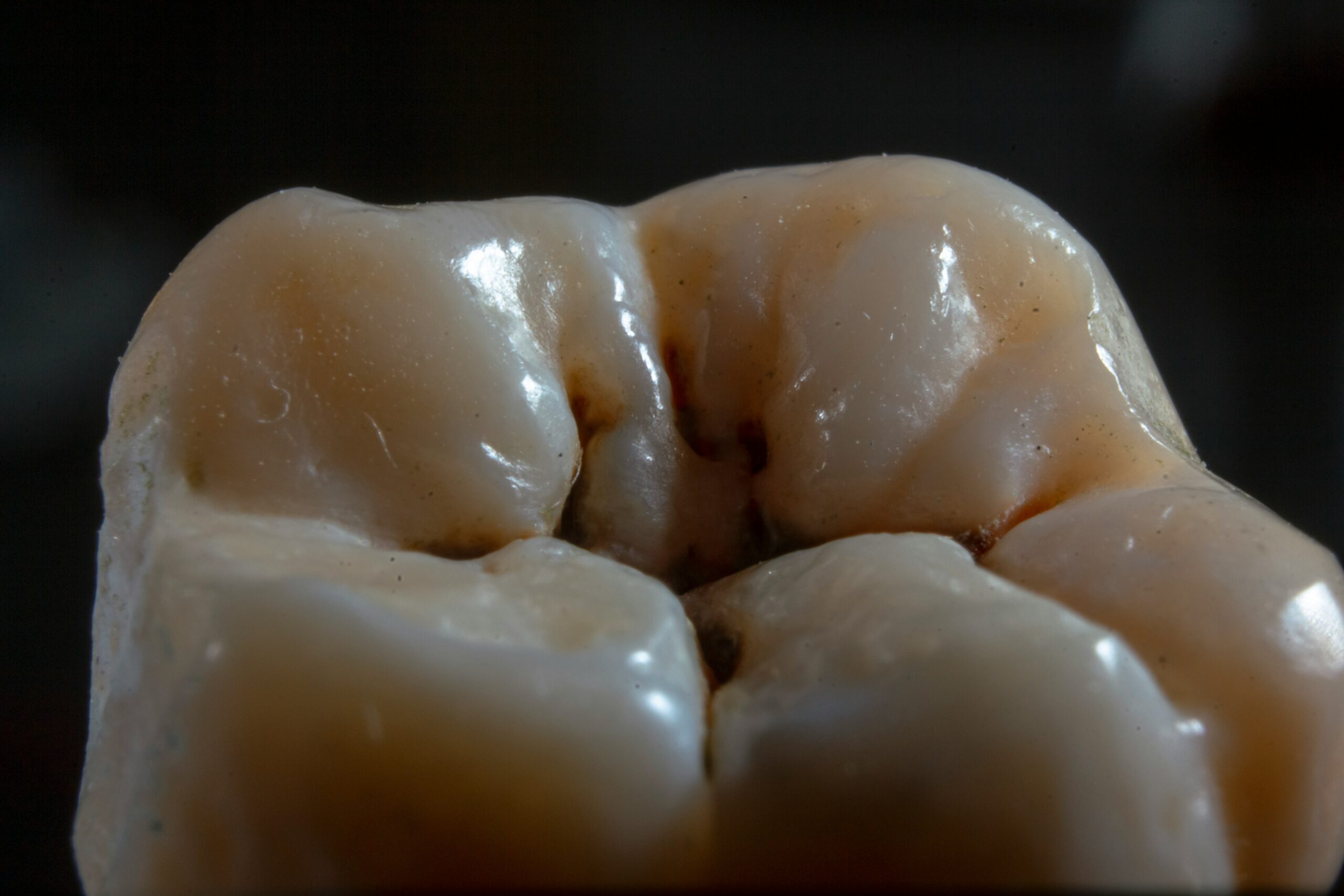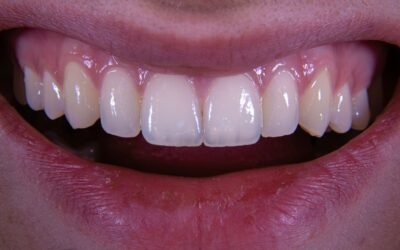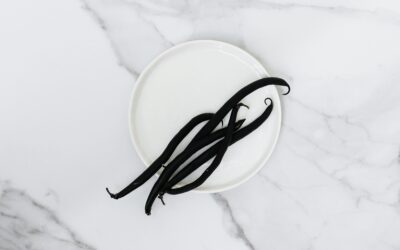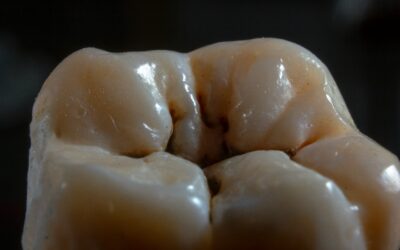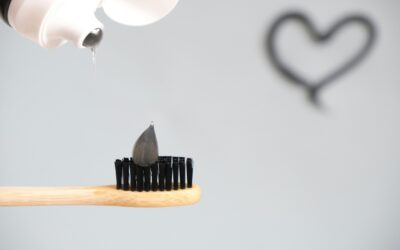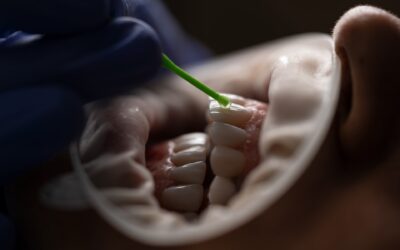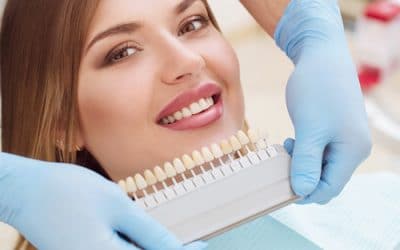Seeing black spots on your teeth can be worrying, especially when they appear suddenly or in visible places like your front teeth. Whether these marks are small dots or larger discolourations, their appearance often leads to questions about what they are, why they’ve formed and how to get rid of them.
The good news? In many cases, black spots on teeth are treatable. Some can even be addressed at home, though many will benefit from professional dental attention. At Cheslyn Hay Dental Practice, we help patients every day understand and resolve such concerns with personalised, expert care.
This guide will explain everything you need to know about black spots on teeth – from causes to treatments and prevention – so you can make informed decisions about your oral health.
What Are Black Spots on Teeth?
Black spots on teeth can take many forms. Some are faint specks; others are more prominent patches. They may appear smooth or slightly textured and can develop anywhere in the mouth. Common areas include along the gum line, on the biting surfaces of back teeth, or in more visible areas like the front teeth. The causes of these black spots range from harmless surface stains to more serious issues like tooth decay, so it’s important not to ignore them.
Are Black Spots on Teeth Always Cavities?
A common misconception is that any black spot is a cavity. While tooth decay is certainly a possibility, not all dark marks mean there’s a hole in the tooth. Discolouration can stem from surface staining, tartar buildup or even a developmental defect in the enamel. Identifying the root cause is key to determining whether professional general or cosmetic dentistry treatment is needed or if simple lifestyle changes could help.
Common Causes of Dark Spots on Teeth
Tooth Decay and Cavities
One of the most serious causes of black spots is decay. When bacteria feed on sugar in the mouth, they produce acids that wear down enamel, eventually forming cavities. These often start small and darken over time leading to the appearance of small black spots on your teeth. Left untreated, they can cause pain, sensitivity and even infections.
Tartar and Plaque Buildup
Plaque is a sticky film that forms on teeth. If not removed, it hardens into tartar, which can appear yellow, brown, or black. Tartar often collects near the gum line and on the back teeth, areas that can be trickier to clean thoroughly without professional treatment and polishing. It can also trap stains from food and drink, making the discolouration worse.
External Staining from Foods, Drinks and Habits
Certain foods and beverages, like coffee, red wine, and cola, can leave dark stains on enamel. Smoking is another major contributor. Over time, these external stains can turn into black or brownish marks, especially if brushing and cleaning are inconsistent.
Fluorosis and Enamel Hypoplasia
Fluorosis occurs when too much fluoride is ingested during childhood, while enamel hypoplasia results from a disruption in enamel formation. Both can lead to discoloured or pitted areas on teeth, sometimes appearing as dark or black marks.
Old Dental Fillings or Crowns
Tooth fillings, especially older amalgam ones, can darken over time or leach colour into the surrounding tooth. In some cases, a damaged or ageing dental crown may also cause black marks near the gum line.
When Should You Be Concerned About Black Spots?
While not every dark mark on your teeth or gums is a dental emergency, some signs mean it’s time to see a dentist. If a spot is growing, painful or accompanied by bad breath or bleeding gums, it could be a sign of decay or infection. It’s especially important to monitor black spots on teeth near the gums, as these may be linked to gum disease or tartar buildup.
Black Spots on Front Teeth vs Back Teeth
Black spots on front teeth are often more distressing and may encourage you to seek treatment sooner, simply because they’re so visible. Whether caused by coffee stains or decay, these spots can affect confidence and appearance. Back teeth, on the other hand, are more vulnerable to plaque and food debris accumulation due to their location and surface structure. While they may not be as visible, they’re just as important to treat promptly.
Black Spots on Teeth Near Gums
Dark marks near the gums are often caused by tartar or the early stages of gum disease. When plaque isn’t properly removed, it hardens and settles at the gum line. This can irritate the gums, lead to inflammation, and eventually cause discolouration. Regular cleanings and proper brushing technique can help prevent this issue from developing.
How to Get Rid of Black Spots on Teeth
The treatment for black spots depends entirely on the underlying cause. When you visit a dental professional, they will use a combination of visual exams, dental tools, and possibly X-rays to determine what’s causing the discolouration. In some cases, intraoral cameras may be used to show you the affected areas in detail. This ensures any treatment recommended is specific to your needs.
Professional Cleaning and Polishing
For spots caused by surface stains or tartar, a scale and polish or an airflow polishing appointment can remove buildup and restore a clean appearance.
Fillings, Crowns and Restorations
If decay is the cause, the dentist may need to remove the damaged area and place a filling or crown to protect the tooth.
Teeth Whitening Options
Staining from foods, drinks, or smoking may be treated with professional teeth whitening. This is often more effective than shop-bought products and is tailored to your enamel’s sensitivity and condition.
Managing Fluorosis or Enamel Defects
More advanced treatments like microabrasion, composite bonding or veneers may be recommended to manage deep-set discolouration caused by developmental defects.
How to Get Rid of Black Spots on Teeth Naturally
Although professional help is often best, some people wish to try natural methods. Options include brushing with baking soda, oil pulling or using activated charcoal. These may help remove some surface stains which may be causing dark spots, but they should be used with caution and not as a replacement for dental care. Not all natural remedies are safe for enamel, so it’s wise to consult your dentist before trying anything new.

